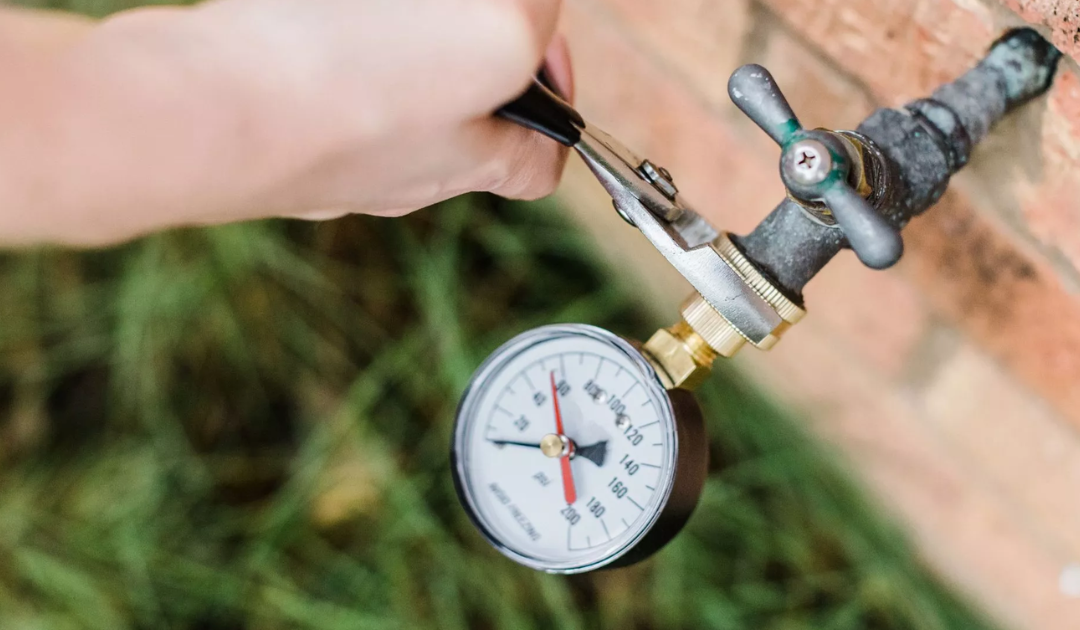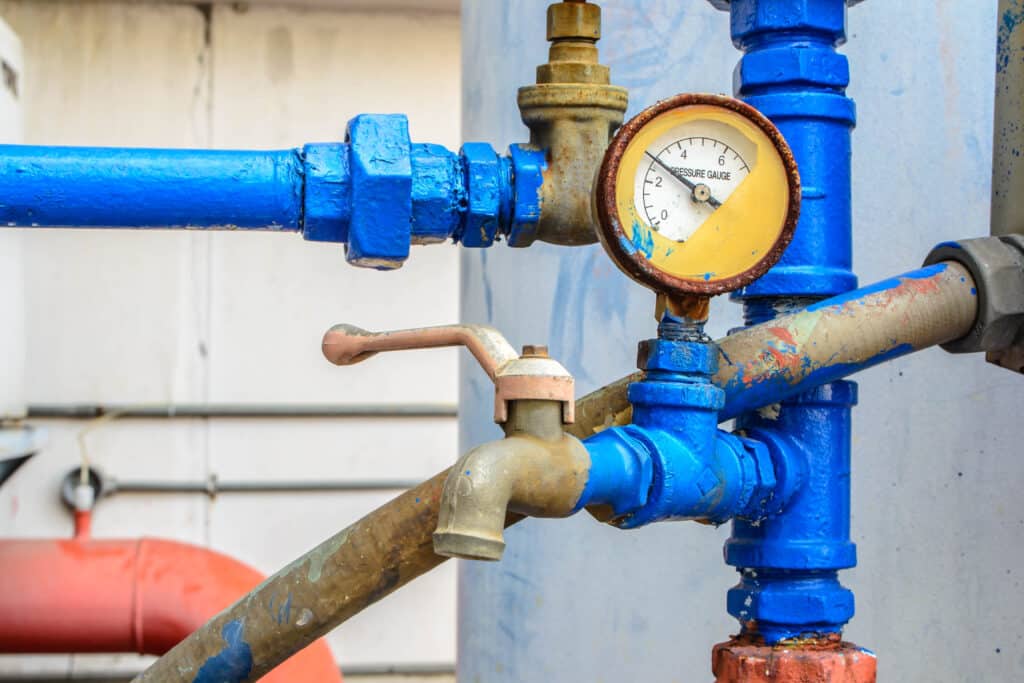We've come across this great article relating to 9 Reasons for Low Water Pressure in Your House listed below on the net and concluded it made good sense to quickly share it with you in this article.

Low tide stress in your house can be a discouraging problem, influencing whatever from showering to cleaning meals. If you're experiencing weak water circulation, there are several feasible causes and solutions to discover. In this guide, we'll go over usual reasons for low tide stress and sensible actions to resolve the problem properly.
Intro to Low Water Stress
Low tide stress takes place when the flow of water from your taps, showers, and various other fixtures is weaker than usual. This can make day-to-day tasks a lot more challenging and less effective. Comprehending the reasons for low tide stress is vital to locating the best solution.
Common Root Causes Of Low Tide Stress
Faulty Stress Regulatory Authorities
Stress regulatory authorities are accountable for keeping consistent water pressure in your house. If they malfunction, it can lead to low tide stress or irregular flow throughout your home.
Local Water Issues
Occasionally, the issue exists outside your home. Local water supply concerns, such as main line leaks or maintenance work, can momentarily decrease water stress in your location.
Pipeline Obstructions
With time, pipes can end up being blocked with mineral deposits, sediment, or debris, restricting the flow of water. This is an usual concern in older homes with galvanized steel pipes.
Rust
Rust within pipes can lead to leaks and minimized water stress. Rust build-up can constrict water circulation, especially in maturing plumbing systems.
Exactly How to Detect Low Tide Pressure
Examining Pipes
Evaluate visible pipelines for indicators of leaks, rust, or clogs. Focus on any kind of unusual noises, such as banging or rattling pipes, which can suggest concerns within the plumbing system.
Consulting with a Plumber
If you're unable to determine the source of low water pressure, take into consideration working with an expert plumber to perform an extensive assessment. They can identify underlying issues and suggest ideal solutions.
Inspecting Taps and Fixtures
Start by checking the water stress at different taps and components throughout your home. If the problem is isolated to certain locations, it might suggest local problems.
Do It Yourself Solutions to Deal With Low Water Pressure
Flushing Water Heater
Sediment buildup in the hot water heater can limit circulation and decrease efficiency. Purging the tank periodically helps get rid of sediment and keep optimum performance.
Examining Stress Regulator
Ensure that the stress regulator is operating properly. Adjusting or replacing the regulator can aid bring back appropriate water stress throughout your home.
Cleansing Aerators and Showerheads
Mineral deposits can accumulate in aerators and showerheads, decreasing water circulation. Remove and clean these components consistently to boost water stress.
Clearing Clogs in Piping
For minor blockages, try making use of a plumbing snake or chemical drainpipe cleaner to clear obstructions in pipes. Beware when using chemicals and adhere to safety guidelines.
When to Call an Expert Plumber
If DIY initiatives fall short to settle the problem or if you presume significant plumbing issues, it's best to seek support from an accredited plumber. They have the experience and devices to deal with complicated problems safely and properly.
Safety Nets to Keep Water Pressure
Installing a Stress Booster
Take into consideration mounting a pressure booster pump to enhance water stress in areas with continually low circulation. This can be especially useful for multi-story homes or residential or commercial properties with high-demand fixtures.
Monitoring Water Usage
Bear in mind water use habits and avoid ill-using the plumbing system. Straightforward modifications, such as shocking showers and laundry loads, can help maintain adequate water pressure.
Normal Upkeep
Set up routine maintenance for your plumbing system to avoid issues such as corrosion, leakages, and obstructions. Dealing with minor troubles early can aid prevent more considerable repair services in the future.
Conclusion
Dealing with low water stress can be frustrating, however identifying the underlying causes and carrying out ideal options can bring back optimal circulation throughout your home. Whether it's cleaning up aerators, inspecting pipes, or talking to a plumber, taking aggressive actions can make sure a constant supply of water for your daily requirements.
FOUR WAYS TO FIX LOW WATER PRESSURE NOW
Turning on a shower or faucet only to find the water comes out in a sad, slow drizzle is never a good feeling. How exactly are you supposed to wash a pan or take a quick shower when it takes 10 minutes just to rinse off a little soap? The good news is that when your water pressure is bad, there's always a cause: typically one that can be easily fixed. Here are some of the most common causes of low pressure and what you can do to fix the issue:
DEBRIS AND MINERAL DEPOSIT BUILDUPS
If you notice low water pressure from just one or two of the fixtures in your house, the problem likely has to do with debris buildup. Water is full of minerals and other debris, all of which can accumulate in your pipes and on your fixtures. This can cause a blockage that affects how much water flows through. To fix this, try filling a small plastic bag with white vinegar, and use a rubber band to hang it around your showerhead or faucet. Let the head of the fixture soak for a few hours, and the vinegar should loosen the deposits.
WATER LEAKS
Leaks are another common cause of low water pressure. If water is flowing out of your plumbing through a hole or crack before it can reach your fixture, the pressure coming out of the faucet or showerhead will be lower. A plumbing professional is your best bet for finding and repairing a leak in your water supply pipes.
Leaks are another common cause of low water pressure. If water is flowing out of your plumbing through a hole or crack before it can reach your fixture, the pressure coming out of the faucet or showerhead will be lower. A plumbing professional is your best bet for finding and repairing a leak in your water supply pipes.
A VALVE ISSUE
If you have low water pressure throughout your home, check your main shut-off valve to make sure it's completely open. You may also want to see if there's a pressure-reducing valve installed. If there is, have a plumber help you adjust the settings to get the pressure you're looking for.
OTHERS USING WATER
Believe it or not, your low water pressure could be caused by your neighbors. If you notice low pressure at certain times of day, it may be because you and the people living next to you have similar schedules - when everyone is showering at the same time, the pressure will be lower in every home. Low pressure throughout the neighborhood may also be caused by an issue with your municipal water supply. If that's the case, call the supplier to see if they're working on the issue.
https://www.rotorooter.com/blog/water-leaking/low-water-pressure-fixes/

I discovered that page about Low Water Pressure in the House? while browsing on the internet. Liked our posting? Please share it. Help others locate it. Many thanks for being here. Return soon.
Click Here To Read More